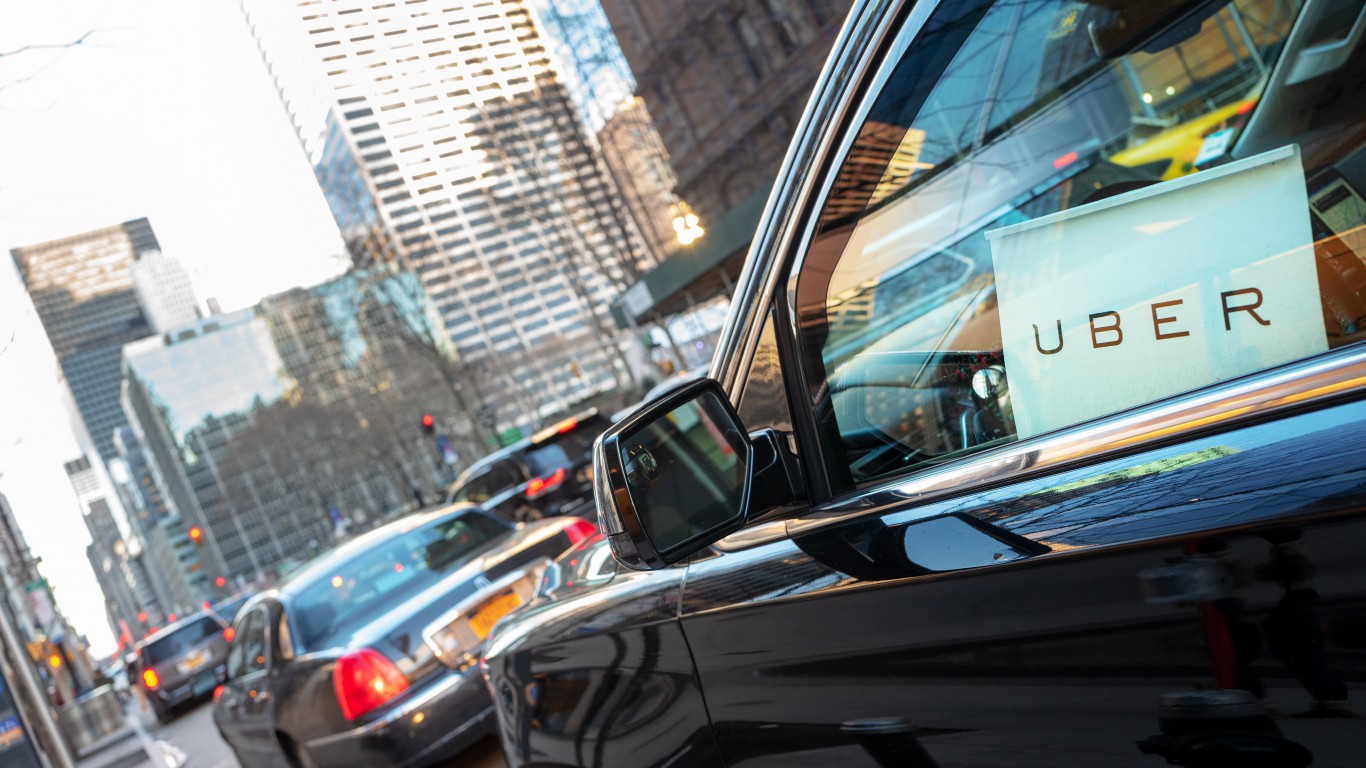
Uber Technologies Inc. (NYSE: UBER) came under criticism from cycling and environmental advocates after word spread through social media that the company was destroying thousands of electric bikes and e-scooters after selling its Jump business to Lime.
Videos of the distinctive red Jump bikes being scrapped provoked anger that showed up this week on Twitter and other social platforms.
EXCLUSIVE: New, close-up pictures of the Seattle JUMP 5.5 fleet show that every single bike has *already had their 36V Li-Ion battery removed,* so the manpower existed to do that prior to sending them to scrap. The extent of the waste is unfathomable. pic.twitter.com/zT3nRhYNAs
— Bike Share Museum (@bikesharemuseum) May 26, 2020
Uber’s sale of Jump earlier this month was a cost-cutting move. As part of the deal, Uber led Lime’s $170 million investment round. It turned over intellectual property along with tens of thousands of Jump bikes and scooters, but Lime did not take all of them.
“As part of our recent deal, Lime took possession of tens of thousands of new model Jump bikes and scooters,” Uber said in a statement. “We explored donating the remaining, older-model bikes, but given many significant issues — including maintenance, liability, safety concerns, and a lack of consumer-grade charging equipment — we decided the best approach was to responsibly recycle them.”
An Estimated 20,000 Bikes
The Bike Share Museum website, citing unidentified former Jump employees, claims 20,000 bicycles are likely to be scrapped. The website says many of them are the current model of the bike, not an older one.
Whether this will change the public’s view of Uber is an open question. Among the benefits touted for automobile ride-sharing, Uber’s main business, is that it reduces the impact of cars on the environment.
Some micro-mobility advocates have suggested that the scrapping of the bicycles is wasteful and removes from the road vehicles much more environmentally friendly than cars. They contend that putting the old bikes into the hands of individuals would be a better use for them.
In addition, the COVID-19 crisis has many people looking for alternatives to mass transit. Treehugger.com points out that Uber is scrapping the bikes at a time when there is a shortage of them in the United States.
A Swift Change of Strategy
Jump was founded in San Francisco in 2010 under the name Social Bicycles Inc. In 2013, it launched its fleet of bicycles, which had the technology integrated into the bikes rather than docking stations. That provided riders more flexibility in where the units were dropped off after a ride was completed. Instead of looking for a docking station, a user just needed to find an appropriate place to secure the bike, like a public bicycle rack.
By 2018, Social Bicycles had more than 15,000 bicycles in six countries, and users were taking 5 million rides a year. In January of that year, it adopted the name Jump. The following month it reached an agreement to allow Uber customers in San Francisco to unlock the bicycles and pay for rentals using the Uber app.
Uber acquired Jump two months later for a reported $200 million.
In December 2019, Uber said it would increase its investment in Jump with an eye toward expansion in Europe. Christian Freese, Uber’s head of Europe, the Middle East and Africa, told CNBC, “We want to double down on micro-mobility.”
Just six months later, Uber has backed away from operating e-bicycle and e-scooter services.
Uber CEO Defends Grubhub Talks
The bike deal is just one aspect of a very active period for the ride hail company. Uber is reported to be in talks to acquire the food-delivery service Grubhub Inc. (NYSE: GRUB). And politicians in Washington are already calling for scrutiny of any potential deal.
Last week, four members of the Senate Judiciary Committee’s antitrust subcommittee wrote to the Federal Trade Commission and the Antitrust Division of the Justice Department about the talks.
“A merger of Uber Eats and Grubhub would combine two of the three largest food delivery application providers and raise serious competition issues in many markets around the country,” says the letter dated May 20 and signed by Sens. Amy Klobuchar (D-Minn.), Patrick Leahy (D-Vt.), Richard Blumenthal (D-Conn.) and Cory Booker (D-N.J.).
This week Uber chief executive Dara Khosrowshahi said on Kara Swisher’s Decode podcast that concerns about consolidating the food delivery business were overstated.
“This market is much broader than some people are presenting it to be,” Khosrowshahi said. “Restaurants deliver directly, Dominoes, et cetera, delivers directly, grocery is delivered directly including hot food, so I think that I would disagree with the definition of market. This market just got bigger.”
He added: “I think that this delivery of food and essentials to homes is an enormous market, and I don’t see any one or any two having 90% of that market. It’s way too big a market.”
Khosrowshahi pointed out that no one is making money in the food delivery industry, whose main players are DoorDash, Grubhub and Uber Eats.
It’s Your Money, Your Future—Own It (sponsor)
Are you ahead, or behind on retirement? For families with more than $500,000 saved for retirement, finding a financial advisor who puts your interest first can be the difference, and today it’s easier than ever. SmartAsset’s free tool matches you with up to three fiduciary financial advisors who serve your area in minutes. Each advisor has been carefully vetted and must act in your best interests. Start your search now.
If you’ve saved and built a substantial nest egg for you and your family, don’t delay; get started right here and help your retirement dreams become a retirement reality.
Thank you for reading! Have some feedback for us?
Contact the 24/7 Wall St. editorial team.


